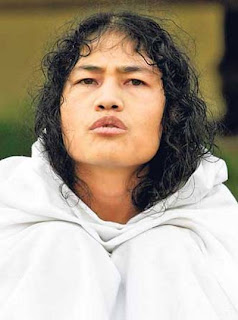India is one of Asia’s leading nations, boasting a brilliant civilization developed throughout its long history. However, its outdated social class system, the caste system, has long been indicated by the international community as one of the biggest obstacles to national development as well as the advancement of its citizens’ basic human rights, since this system still holds sway over the reality of the Indian society through a rigid set of religious practices, despite its prohibition by national law.
In addition, the military powers of
The 2007 Gwangju Prize for Human Rights Committee came to take a deep interest in the above two problems encountered by the Indian society today.
The caste system is composed mainly of 4 castes, and those who fall outside of this system altogether are often called the “untouchables.” As the fifth caste, the untouchables are living across the nation, accounting for around 15% of the total Indian population. Traditionally, they have been engaged in the hardest and most difficult jobs in the Indian society, bearing the brunt of rigid caste-based discrimination in terms of residence, occupation, etc. Although the caste system was banned under the Indian constitution 50 years ago, it persists throughout all aspects of the present-day Indian civil society, proving powerfully effective in some 80% of the total Indian provinces.

Lenin Raghuvanshi and the People’s Vigilance Committee On Human Rights, PVCHR) led by him, have put up vehement resistance against the caste system through various social activities, including the supporting of torture victims in 5 northern states with 50,000 members participating, and the operation of education centers in 45 provinces for the numerous number of local children. This organization has developed into a nationwide and worldwide network composed of legal experts, journalists, human rights advocacy groups, etc. Also, its leader has brought hope back to the minds of more than 3,500 bonded child laborers and those suffering human rights infringements prompted by the caste system, especially to the untouchables.

On November 2nd, 2000, the Indian military opened fire on its own citizens in the state of Manipur. This was one of the many such incidents following the enactment of the AFSPA. Since the incident in Manipur, Irom Sharmila, a resident of the tragic state, has refused to eat and drink anything in resistance to indiscriminate use of the AFSPA against civilians. The response of the Indian government to her resistance has been repetitively evasive: the government has arrested her on a charge of ‘attempted suicide’, force-fed her and then freed her under applicable law, but, up until now, has failed to provide any fundamental alternative to the law in question. In October 2006, Ms. Sharmila left Manipur for
In recognition of their efforts to improve human rights in
The Gwangju Prize for Human Rights will provide boost in their further struggles. It can make the two awardees and their struggles known to a wider audience while offering them the strength and courage required to complete their journey towards their goals. We believe there lies the principal objective of the Gwangju Prize for Human Rights.
In closing, the 2007 Gwangju Prize for Human Rights Committee would like to send an encouraging message to all human rights activists around the world as well as this year’s co-awardees.
The 2007 Gwangju Prize for Human Rights Committee
Committee Chairman:
Lee, Hong-Gil
Chairman of the Board of Directors of the May 18 Memorial Foundation
Committee Members:
Kim, Chil-Jun
Secretary General of the National Human Rights Commission,
Jeong, Ui-Yong
Korean National Assemblyman,
Moon, Guk-Joo
Executive Director of the
Cha, Sung-Hwan
Director of the
























